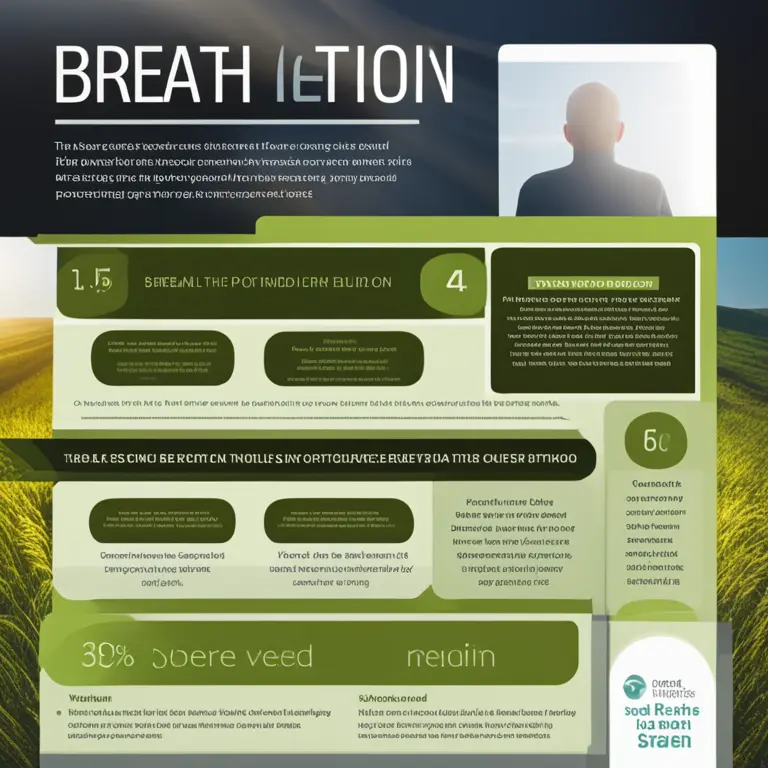
Meditation Practices for Inner Harmony
Discover meditation practices that promote inner peace and harmony, enhancing your spiritual journey and daily wellbeing.
article by Hina Kurosawa
The Power of Breath-Focused Meditation
Breath-focused meditation is a cornerstone of many meditation practices. It anchors the mind in the present moment, helping to clear the mental clutter that can dominate our thoughts. This technique involves concentrating on the breath as it enters and exits the body, often leading to a state of calm and focus. Regular practice can significantly reduce stress and anxiety. It’s accessible to beginners, yet profound enough to benefit long-term practitioners. The beauty of breath-focused meditation lies in its simplicity; it requires no special equipment and can be practiced anywhere, at any time.

Guided Visualization for Relaxation
Guided visualization is a powerful tool for mental and emotional healing. It involves following a spoken narrative that leads the imagination through a serene and healing scenario. The beauty of this practice is in its flexibility, allowing individuals to engage with it through personal interpretations of the narrative. It encourages relaxation, stress relief, and can even serve as a platform for self-discovery. As the mind becomes absorbed in the imagery, the body often responds by relaxing, further supporting the visualization’s calming effects.

Mantra Meditation and Chanting
Mantra meditation incorporates the repetition of sacred words or phrases, often in Sanskrit, to focus the mind and connect with higher consciousness. The practice of chanting can elevate the experience, creating a vibrational energy that resonates through the body. The repetition of a mantra can help to drown out external distractions, allowing deeper immersion in the meditative state. This form of meditation has roots in various spiritual traditions and cultures, emphasizing the universality and interconnectedness of our experiences.

Walking Meditation for Mindful Movement
Walking meditation is a form of active meditation where movement guides mindfulness. The practice involves paying close attention to the sensations of walking, noting the rhythm of steps, the feel of the ground beneath the feet, and the movement of the body through space. It’s an ideal meditation practice for those who find stillness challenging, offering a dynamic alternative to more stationary techniques. Walking meditation illustrates that mindfulness can be a continuous part of life, not restricted to periods of stillness.
Body Scan Meditation for Somatic Awareness
Body scan meditation is a practice that involves slowly and attentively moving one's awareness through different parts of the body, often beginning at the toes and moving upward. This method encourages practitioners to observe bodily sensations without judgment, fostering a deeper connection with the physical self. It’s particularly useful for cultivating somatic awareness, helping individuals to detect and release areas of tension or discomfort. Regular practice can enhance the mind-body connection and encourage holistic wellness.
Zazen: The Zen Meditation Approach
Zazen, or seated meditation, is at the heart of Zen Buddhist practice. It emphasizes sitting in alert, upright postures and letting thoughts pass without attachment. Zazen doesn’t actively seek enlightenment but rather creates the conditions for it to be experienced organically. This minimalist form of meditation depends heavily on posture and breath and is often accompanied by a focus on a 'koan' – a paradoxical question or statement to meditate upon. Zazen can be challenging for beginners but with persistence, yields deep insight into the nature of existence.
Progressive Relaxation for Stress Release
Progressive relaxation, also known as progressive muscle relaxation, is a technique that involves tensing and then relaxing each muscle group in the body. This practice can help identify areas of tension and promote a deep state of physical relaxation, often leading to reduced stress and better sleep. It is particularly beneficial for people who experience anxiety and muscular tension, as it teaches the body and mind to recognize and distinguish between tension and relaxation states.
Published: 2/12/2024
Modified: 2/12/2024
More predictions
Come back here soon to learn more about yourself and your future


The Spectrum of Meditation Practices
Delve into the diverse world of meditation techniques to enhance mindfulness, focus, and tranquility in your daily life.


Variety of Meditation Practices for Inner Peace
Discover a curated list of meditation techniques to cultivate mindfulness and tranquility in your daily life.


Various Meditation Practices for Inner Peace
Discover different meditation techniques designed to promote tranquility, mental clarity, and spiritual growth in our comprehensive guide.